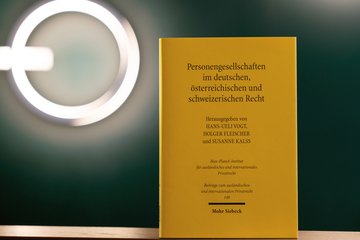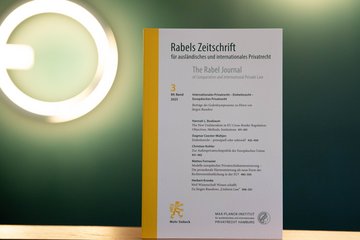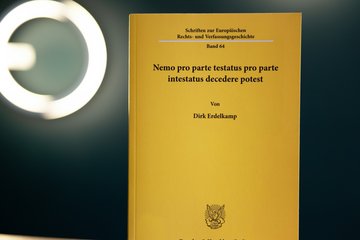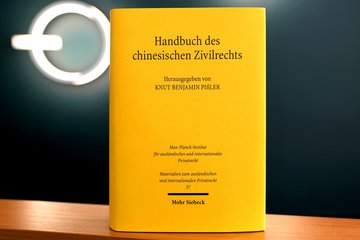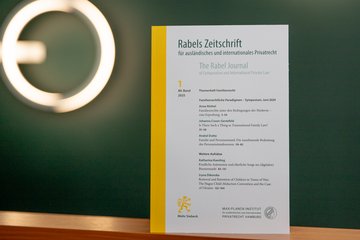Decolonial comparative law in focus in the latest RabelsZ
Comparative law, which long considered itself to be a cosmopolitan, emancipatory discipline, is increasingly being linked to a colonial mindset. In the latest issue of the Rabel Journal of Comparative and International Private Law (RabelsZ), director at the Institute Ralf Michaels and British Academy Global Professor Lena Salaymeh put forth the intellectual motivations behind their research project on decolonial comparative law.
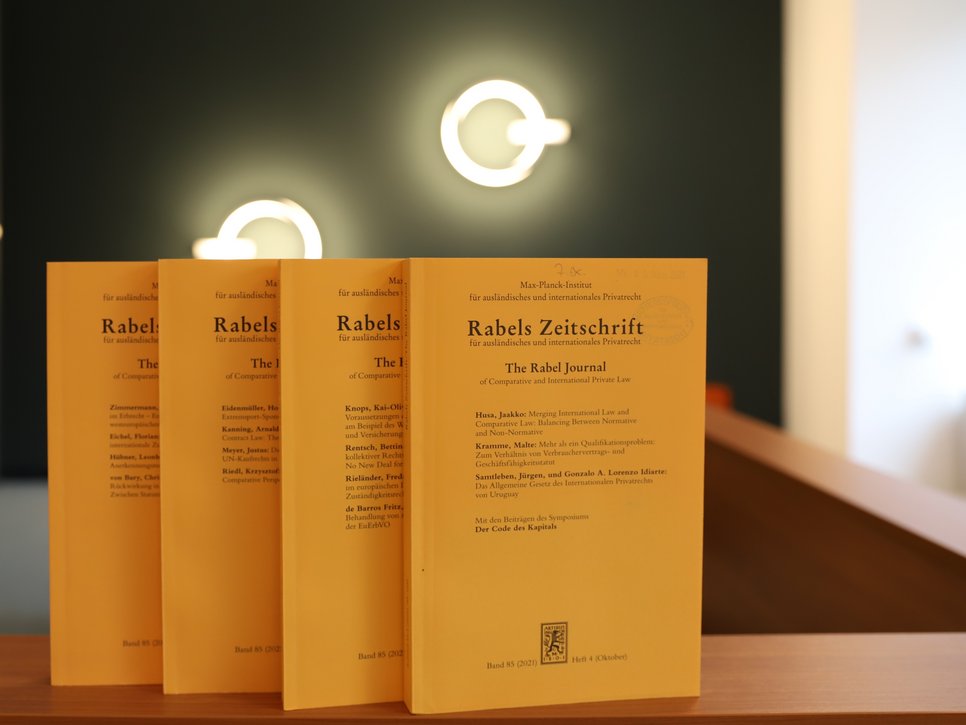
Volume 86 of RabelsZ shines a spotlight on the topic, with this issue including three articles that grew out of the Decolonial Comparative Law Project’s inaugural workshop. All three articles–published in English–are available for unrestricted access via the publisher’s website. In their article “Decolonial Comparative Law: A Conceptual Beginning”, Michaels and Salaymeh give an overview of the discipline of comparative law and discuss methodological dead ends that earlier attempts at criticism strayed into. Based on decolonial theory and legal analyses, they sketch out the foundations of a decolonial approach to comparative law.
The other two articles are by authors from the Global South. In “Decolonial Comparative Law: Thoughts from South Africa”, Emile Zitzke (University of the Witwatersrand, Johannesburg) explores the difficulties of an oft-encountered African approach to comparative law that always looks to find answers in European law. In “Constitution-Making in the Andes”, Roger Merino (Universidad del Pacífico, Lima) asks how comparative constitutional law can account for the role that historically oppressed and racialized social movements play in the constitution-making process. The article examines how the colonial question influenced the struggle to produce constitutions in the South American Andes and serves as the foundation for the new plurinational constitutions of Bolivia and Ecuador.
Also in this issue are articles by Johanna Caroon-Gestefeld on the impact of European Union citizenship in international family law and Jochen Hoffmann & Simon Horn on Germany’s revised private international law of partnerships (both in German) as well as articles by Johannes Ungerer on nudging in PIL, Francesco Giglio on Roman dominium and the common-law concept of ownership, and Jing Zhang on the functional reform of the Chinese law of secured transactions in movables (all in English). The issue also includes several reviews of recent publications in the areas of comparative law and PIL.
The Rabel Journal of Comparative and International Private Law (RabelsZ) publishes essential articles on all the Institute’s areas of activity, new laws, treaties, comparative-law-based legislative drafts, and reviews of scholarly literature from Germany and abroad. Founded in 1927 by Ernst Rabel, the Institute’s journal was renamed in his honor in 1961.
Image: © Max Planck Institute for Comparative and International Private Law / Ana Karolina Wolf

